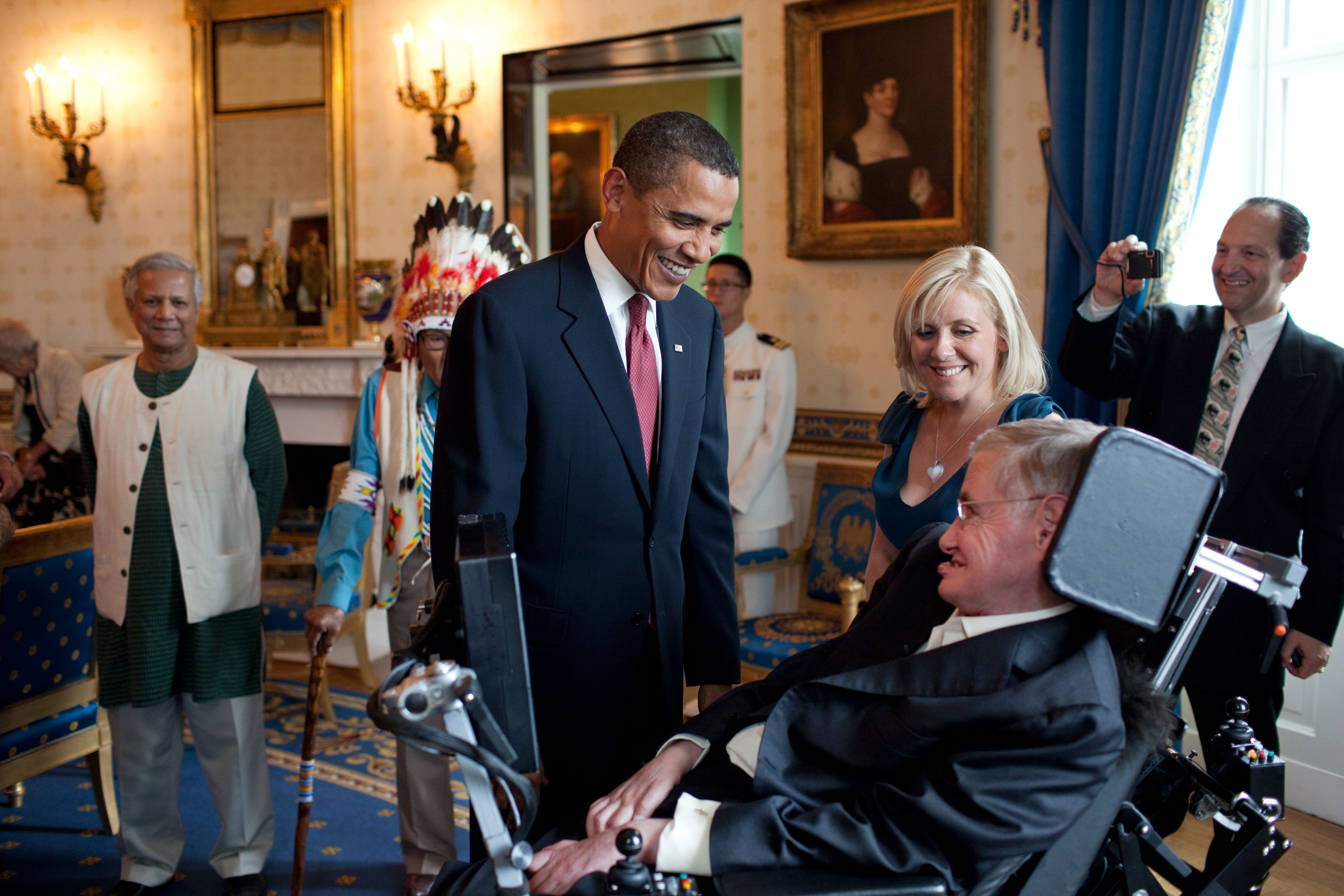by Mitchell Plitnick
The story of Stephen Hawking’s decision to pull out of the Israeli President’s Conference just got more interesting. A major United States newspaper, the Boston Globe, published an editorial offering strong support for Hawking, and, while not supporting or opposing boycotting Israel as a tactic, took a firm stance in saying that the boycott tool is a legitimate, non-violent means to protest Israeli policies. It actually called the “overreaction” to Hawking’s decision an impediment to finding a resolution to this vexing conflict.
Perhaps the most important part of the Globe’s editorial was this: “The movement that Hawking has signed on to aims to place pressure on Israel through peaceful means. In the context of a Mideast conflict that has caused so much destruction and cost so many lives, nonviolence is something to be encouraged.”
This is a truly groundbreaking shift in the US discourse around the Israel-Palestine conflict. Among many infuriating tricks the supporters of Israeli policies (be they supporters of hard-line Likud policies, or supporters of endless negotiations as pushed for by the previous Kadima governments) have employed over the years, one has recently become more prominent: casting support for Palestinian rights as a tactic designed to “destroy Israel,” thus blanketing even non-violent actions in language that defines the action as being violence by other means. The point is that once actual Palestinian violence diminished, it was crucial that Israel still be seen as somehow facing an “existential threat.”
For years, the mantra has been that the Palestinians are bent on destroying Israel, and their whole movement is nothing more than a cover for their raging hatred of Jews. This mode of thinking, in various forms, resurged, for understandable reasons, during the second intifada, which witnessed by far the most inter-communal violence since the 1948 war (however imbalanced that violence might have been).
So, in 2005, towards the end of that bloody uprising, 171 Palestinian civil-society groups issued their call for boycotts, divestment and sanctions (BDS) directed against Israel. “These non-violent punitive measures,” the appeal asserted, “should be maintained until Israel meets its obligation to recognize the Palestinian people‘s inalienable right to self-determination and fully complies with the precepts of international law.” The groups defined that compliance as ending the occupation, ending discrimination in form and practice against Palestinian citizens, and “Respecting, protecting and promoting the rights of Palestinian refugees to return to their homes and properties as stipulated in UN resolution 194.”
One may agree or disagree with those goals, and certainly anyone who disagrees is perfectly justified in opposing the BDS movement. But supporters of Israeli policy are not entitled, on one hand, to berate the Palestinians for using violence to end the occupation and address their dispossession while, on the other, to condem them for using non-violent means such as these proven methods to achieve their goals.
The Globe editorial appeared a day after my weekly column at Souciant.com did. There, I wrote the following: “Ultimately, one can support or oppose a boycott. But the BDS movement was conceived as a way to advance the Palestinian cause without physical violence. There are good reasons, not based in a lack of understanding of the conflict, much less in anti-Semitism, why people support the boycott. Do pundits really want to send the message that a non-violent method is unacceptable? What options does that leave for the Palestinians, now that they have irrefutable proof that the Israeli government is farther away than ever from a willingness to end the occupation and the United States is more feeble and feckless than ever? Oppose the boycott if you wish, but trying to make it illegitimate is self-defeating and inspires more violence.”
Israel’s supporters have constructed a paradigm that states that the only method that can be used to oppose the occupation and promote Palestinian rights is to ask Israel, very nicely, to grant these things. The Globe editorial is proof positive that this paradigm is crumbling.
Challenging the notion that Israel should only be persuaded (with carrots), and never pressured (with sticks or at least the withdrawal of carrots) to end its occupation and oppression of Palestinians has had some watershed moments in recent years. Most notably in the United States, perhaps, was the publication of John Mearsheimer’s and Stephen Walt’s paper and book, The Israel Lobby and U.S. Foreign Policy. Hawking’s action and the shift in discourse that the Globe’s implicit legitimization of the BDS movement may well mark the beginning of another.
The more such popular, cultural, economic, and political pressure on Israel to change course is seen as acceptable, the more possible it becomes for US Middle East to change, as well. And that, in turn, increases the possibility that the Israeli public and elite will reassess the country’s current trajectory and where it is taking them. That, to be sure, is still a very distant dream. But our policy has largely been formed by interest groups leading and the government following. As our discourse shifts more, even some of our most feckless politicians will eventually have to follow.






I support the right to boycott as a legitimate way of expressing displeasure. I also support the boycott of Israel – a country that I do not believe really wants peace. Whenever peace is near, Israel adds to its settlements, a non-starter for the Palestinians.
Astute analysis Mitchell. But on the light side: when is Congress is going to condemn Hawking? Abe Foxman has jumped on the bandwagon, what is the AIPAC waiting for? I am looking for a comedy show on the floor of the Congress where representative after representative denounce Hawking. Next they will have him testify for UnAmerican activities!! What a show.